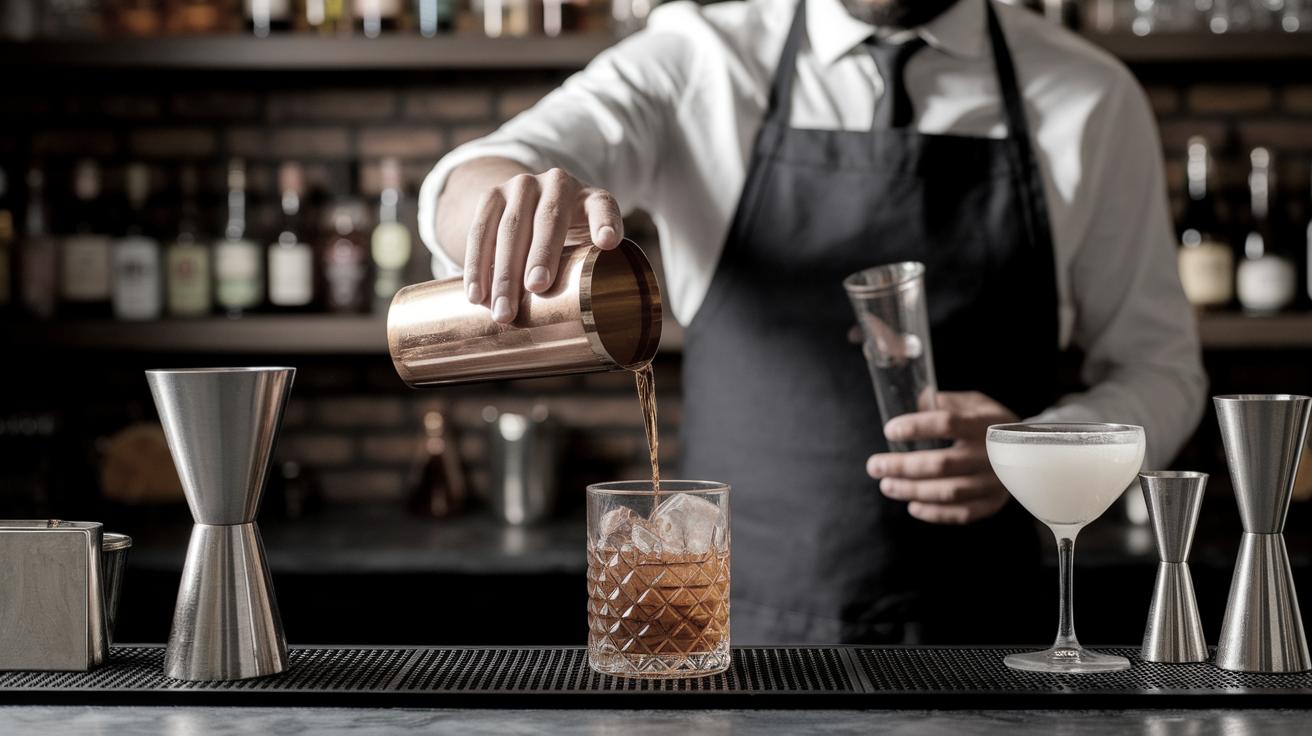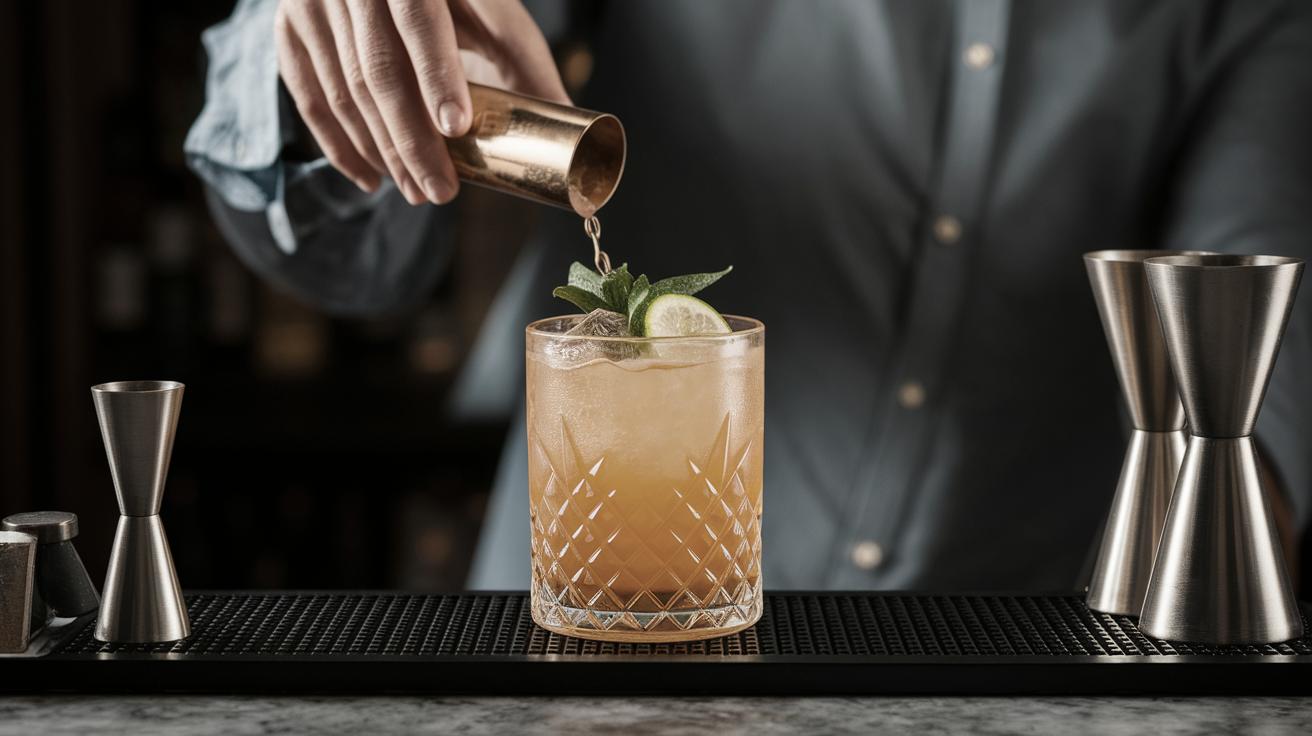How to Become a Certified Mixologist
In today’s culinary world, mixology stands out as a sophisticated and intriguing art form. This blog post serves as a comprehensive guide for those aspiring to become certified mixologists. It clarifies the distinction between a bartender and a mixologist, delving into the unique roles and responsibilities inherent in the craft.
The guide further outlines the essential steps to certification and highlights the resources needed to excel in this profession. Finally, it emphasizes the importance of balance and creativity in mixology.
Through this post, we aim to demystify the process of certification, providing aspiring mixologists with the tools and insights necessary to embark on a successful career in this exciting field.
What Is a Mixologist?
A mixologist is a professional who specializes in the creation, innovation, and refinement of cocktail recipes. Unlike the traditional role of a bartender, which commonly involves serving drinks, a mixologist is deeply involved in the art and science behind the perfect cocktail. This role encompasses a deep understanding of spirits, flavor profiles, garnishes, and presentation techniques.
Mixologists are often seen as artists, crafting drinks that not only satisfy the palate but also offer a unique and enjoyable experience. They stay knowledgeable about trends in the industry, continually experimenting with new ingredients and techniques to perfect their craft. This deep focus on the nuances of cocktail creation is what sets mixology apart from standard bartending.
What Does a Mixologist Do?
Mixologists take cocktail crafting to a higher level by designing original drink recipes and offering innovative twists on classic cocktails. They are responsible for developing a beverage menu that is both creative and aligned with the theme of the venue or event. This involves choosing an array of ingredients, including top-shelf spirits, fresh fruits, herbs, and homemade syrups.
Beyond just creating drinks, mixologists are also educators and storytellers. They often engage with patrons, sharing the backstory of a drink or the characteristics of an unusual ingredient. Moreover, mixologists train other staff members in preparation techniques to ensure consistency and quality.
Isn’t Mixologist Just A Fancy Word for Bartender?
While it might seem that way at first glance, the distinction between a bartender and a mixologist is significant. Bartenders are skilled in service, managing the bar, and preparing drinks according to recipes. Their focus is often on speed, efficiency, and customer service, essential to keeping the bar flowing smoothly.
Mixologists, however, are akin to culinary chefs in their approach to beverages. Their main focus is on the artistry of drink creation, encompassing not only the mixing and serving of drinks but also the exploration of new processes, techniques, and ingredient pairings. A mixologist’s work is less about volume and more about quality and creativity.
How to Become a Mixologist
The path to becoming a mixologist begins with gaining experience behind the bar. Start by working as a bartender to learn the basics of drink preparation, customer interaction, and bar management. This foundational experience is crucial in understanding the dynamics of a lively bar environment.
Once you have developed a solid bartending skill set, seek specialized training through courses that focus on mixology. Many hospitality schools and online platforms offer programs in mixology. These courses often cover a wide range of topics, including the history of cocktails, modern mixology techniques, and industry trends.
What Resources Are Required to Become a Mixologist?
To start your journey, invest in fundamental bar tools, such as shakers, strainers, and other mixing equipment. Having these tools readily available allows you to practice cocktail creation and refine your techniques.
Additionally, build a personal library of reference materials, including mixology books, guides on flavor pairing, and industry publications. Access to comprehensive resources not only helps in honing your skills but also keeps you updated on the evolving trends in the industry.
It’s All About the Right Mix
At the heart of mixology is the ability to balance flavors, textures, and aesthetics to create an engaging sensory experience. Whether you’re crafting a classic cocktail or an innovative creation, the aim is to deliver a memorable flavor journey for the consumer.
Continually experimenting with ingredients allows you to forge distinct flavor combinations and enhance your palette. Seasoned mixologists understand the importance of this creative exploration in elevating both the drink and the drinker’s experience.
Next Steps
| Topic | Details |
|---|---|
| What Is a Mixologist? | Focuses on cocktail creation and presentation, applying art and science. |
| What Does a Mixologist Do? | Designs drink recipes, innovates cocktails, and educates patrons and staff. |
| Isn’t Mixologist Just A Fancy Word for Bartender? | Mixologists create and experiment with drink recipes, not just serve them. |
| How to Become a Mixologist | Start as a bartender, then pursue specialized mixology courses. |
| What Resources Are Required? | Invest in tools, and access reference materials and educational resources. |
| It’s All About the Right Mix | Balance flavors and explore innovative combinations for memorable experiences. |


